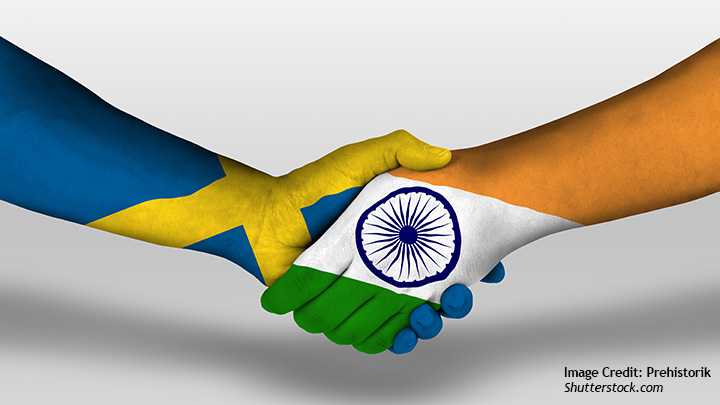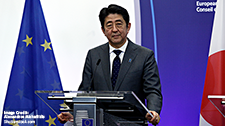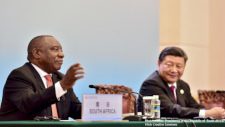Abandoning Neutrality, Absorbing Multipolarity: India and Sweden by 2047

Jagannath Panda
Pragmatism and polarised positioning have become the new normal in foreign policy decision making – and Sweden and India are no exception. Sweden moved away from and perhaps permanently abandoned its neutrality discourse in foreign policy by joining the European Union (EU) in 1995, more recently by applying for North Atlantic Treaty Organisation (NATO) membership and, importantly, by demonstrating a positive attitude towards the Indo-Pacific. As a rising power, India has been engaging for some time in a national interest-oriented multi-aligned strategy, moving away from its original non-aligned discourse, particularly in order to balance an expansionist China. The move away from neutrality and towards multipolarity is thus a common thread in both Indian and Swedish foreign policies, but what might their future relationship entail?
Since diplomatic ties were established in 1949, India and Sweden have enjoyed positive relations built on shared values of democracy, pluralism, and respect for human rights and a rules-based international order. In 2023, as India and Sweden marked 75 years of diplomatic relations, both countries had several reasons to celebrate, from the highs of bilateral trade to increased leader-level interactions.
Obviously, Sweden’s growing interest in India is neither an isolated, nor an abrupt phenomenon. Emerging global challenges – especially amid the fragmentation caused by the COVID-19 pandemic, the still-intensifying US–China great power competition and the ongoing Ukraine war – have brought greater geopolitical strife and pushed “like-minded” countries to enhance cooperation and collaboration in the hope of expanding their geo-economic and security interests.
In particular, Russia’s pariah status among the Western powers, making it a permanent adversary, has irretrievably changed the liberal order. Sweden’s and Finland’s decisions to join NATO soon after the February 2022 invasion of Ukraine concretised this turn in the European security architecture. Finland is already a member and Sweden’s membership is likely to be ratified soon by both Hungary and Turkey, unless President Recep Tayyip Erdogan reneges on his “conditional support”. Sweden’s intention to allow NATO troops on its soil even before joining increases NATO’s deterrence options against Russia.
Moreover, China’s continuing downward trajectory – in terms of both European perceptions of China as a corrosive influence on the rules-based world order and doubts about its potential as a responsible major power – has been hardening Sweden’s outlook on China for some time. At the same time, India’s historical ties and continuing trade with Russia have not prevented the former from pursuing focused and expanded ties with the West. In fact, Russia’s loss of power has compelled India’s full-throttle diversification in both the energy sector and the arms trade.
India’s foreign policy has become more assertive with regard to China, with a greater focus on not allowing China to push forward with its anti-West agenda. This is especially true in the non-Western world, where China’s influence is increasing through China-dominated forums such as the Shanghai Cooperation Organisation (SCO) and the BRICS, both of which are experiencing a new wave of expansion. India has positioned itself as the leader of the Global South during its pivotal year as G20 president as part of this agenda.
Such concerns have injected a more regional and trans-global dimension into the interactions between India and Sweden, and brought about a transformation in bilateral relations. Can India emerge as an alternative pole to China in the Swedish or broader European lens? How can India and Sweden mitigate the strategic gap in global concerns, not least their disparate stances on the Ukraine war? How does the future look for India’s ties with Sweden as a gateway for India-Nordic/India-EU ties in coming years or decades?
Read this complete article in UI’s Special Report titled “A partnership for a changing world: reflections on the future of Sweden-India relations” edited by Henrik Chetan Aspengren.




